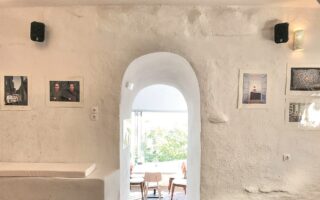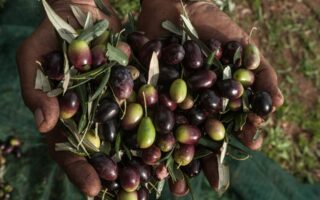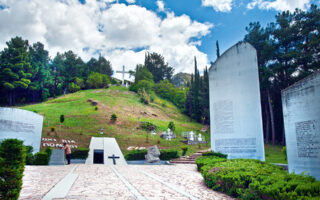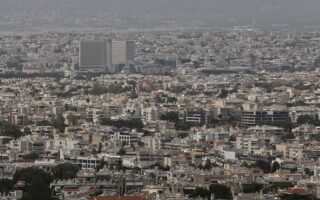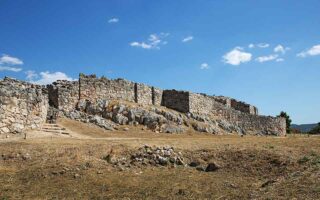A Greek success story: Three generations in the mooring rope business
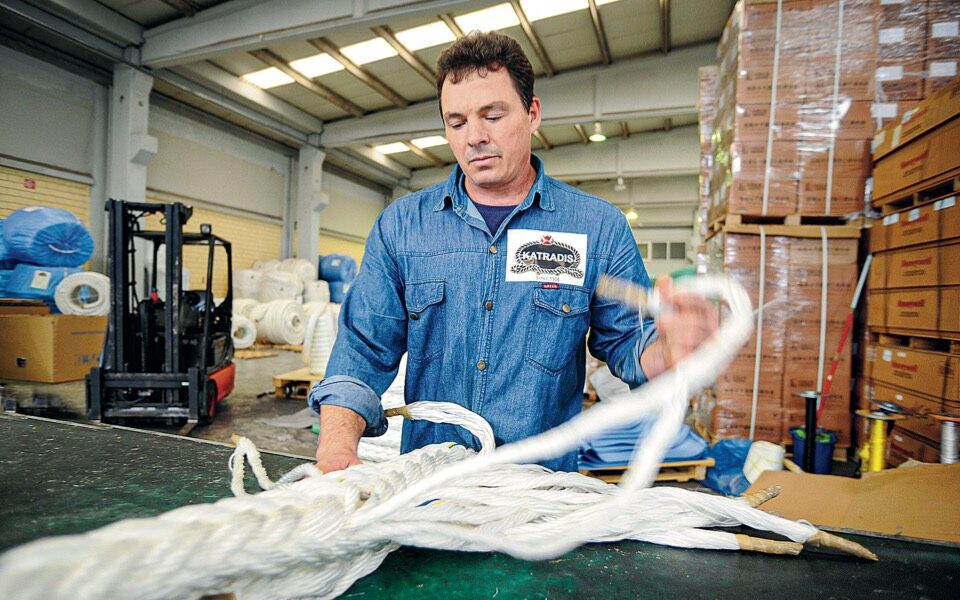
In 2022 alone, 18 million people traveled by ship to and from Greece’s 227 inhabited islands. Of these islands, 89 do not have an airport and are served exclusively by passenger ferries, which offer a crucial link with the mainland. These ships play an important role in island life – we still remember how empty our seas seemed during the Covid-19 pandemic.
But it is in the summer that ships dominate the seas. From the legendary old ferries of Captain Agoudimos that plowed the Aegean during the 1980s, to today’s state-of-the-art vessels with all sorts of amenities and speeds of up to 40 knots, they are the stars and the corps of our lengthy tourist season. Travelers link their names and itineraries with their fleeting vacation utopias. Their expectations, loves, joys and sorrows travel with them on their decks.
And yet there is something without which they could not do their work, hiding in plain sight: It is the mooring ropes that tie them to the bollards at the ports, the ship’s connection to land, the umbilical cord that keeps it from drifting away when it is not sailing. A ship “ties up” at port, after all. It is a completely literal binding, which is linked not only to an entire tradition and specialized technology, but also to our country’s seafaring history. A history, of course, in which passenger shipping is a small part, with the wonderful past – and brilliant present – of our merchant fleet impressively completing the picture. However, while our 5,000 merchant ships sail the planet’s oceans transporting goods, it is the legendary Greek summer that brings the shipping world into everyone’s lives, if only for a few hours.
‘It all started when sponge divers from Kalymnos and Symi complained to my father that the hemp and yucca ropes he sold to them wore out too fast’
Looking into the history of marine ropes in Greece, we find in Piraeus a three-generation family business with roots in Izmir and the island of Chios, the Katradis Group, founded in 1936. At their offices in Drapetsona, a coastal town in the southwestern part of Piraeus and a hop, skip and jump from the constant bustle of the country’s biggest port, we meet Nikolaos Katradis and his son Konstantinos, who spoke to us not only about mooring ropes, but also shared stories with valuable historical, social, scientific and maritime interest.
“My family were merchants from Chios,” Nikolaos Katradis, who has headed the company for the past 70 years, tells Kathimerini. “My grandfather transported goods between Chios and Smyrna in wooden sailboats, the trucks of the time. Great shipbuilding dynasties, such as the Carras and Livanos families, made their first forays with such vessels. They loaded goods in Smyrna, such as grain, and took them to Russia. Look at the Inglessis family, who have been in shipowning for 150 years, and started with such boats that took them from Samos to Odesa. We, the Chiots, acquired great prosperity and fame in Odesa – we even built banks there.”
‘A source of wealth’
Then came the Greco-Turkish War of 1919-1922, known in Greece as the Asia Minor Catastrophe. Katradis remembers: “My father came from Smyrna to Piraeus in 1922 and managed to get ahead with endless toil. Growing up in Kardamyla [on Chios], I saw sailors leaving on ships and coming back rich. Of course they came back after two or three years. Today you ship off for eight months. I remember an uncle who was at sea for five straight years and was told by the shipowner to leave for Rotterdam as soon as he returned to Chios. He did as he was told and didn’t even get to see his children. I visited him on the ship and saw his cabin, which just barely held the bed. I thanked God that I didn’t become a sailor myself, as my relatives wanted me to. And so I got involved in my father’s business, ropes, because I understood from a young age that the sea was a source of wealth.”
The 87-year-old businessman’s stories take us back in time, to the ashes of war. “When shipowners started coming from London and New York to Greece, right after the war, the economy of our country started to change. The 98 Liberty ships we got from the Americans also played a big role. So much wealth! Those who got them became great,” he said.
He also recalls with admiration the humble beginnings of shipbuilding giants, such as Antonis Angelicoussis, his compatriot from Kardamyla. “I remember him in 1953, when he came to buy a coil of rope from my father, because he had just started in the business, with two friends and a ship. A few years later he had set up an empire, which today is the leading player in world shipping.”
The veteran industrialist also remembers Stavros Niarchos, the billionaire shipping tycoon: “He was a very big name and I wanted him as my client. I went to his shipyards, in Skaramangas, and found his [company] director, his right-hand man. I was 15 years old and I was ashamed because I didn’t have the certificates he was asking for. But I persisted. I went and went again. In the end, to get rid of me, he gave me an order. I sat down and made him a tempting offer, which made him come to our factory in Drapetsona to see our products up close. And when he saw their quality, he said to me: ‘I came here because I thought that the ones you offered me were used, from old ships, because the price was too low. From now on I will be your customer.’ I convinced him because I dropped the prices, but slowly started raising them. That’s what everyone who worked in the sector did, to bring the shipowners here from London.”
The sponge divers
But what made his product so special? His answer takes us to the story of the Dodecanese’s famed sponge divers: “It all started when sponge divers from Kalymnos and Symi complained to my father that the hemp and yucca ropes he sold to them wore out too fast. So he had the idea to make the ropes triple-stranded, instead of single-stranded. He went and brought three-strand cord from Italy, and since then his ropes became known for their safety and strength.”
The next big development was in Portugal in the 1970s, where Nikolaos Katradis introduced synthetic materials to the mix and, in collaboration with a local industrialist, created a rope that became a game-changer. He called it Nika-Cord and made it with characteristic red and green rope in honor of the manufacturing country. “It was a rope that absorbed shocks and was resistant to friction. They told me that I would be ruined, because it was too expensive to buy, but I bet on quality and I won. Later, in the 1980s I moved production to my own factory in Schimatari, where it is still made today.”
His son Konstantinos, now 50 years old, is celebrating 30 years in the family business. He is the current CEO and continues a three-generation tradition with his eye firmly on the future. The innovations introduced to the market by his father, such as Nika-Cord, continue with the use of new technologies such as aramid fibers, also known as Kevlar.
“Most of us see a rope and think it’s something simple. We take it for granted, yet encoded within it is our technological evolution,” Konstantinos Katradis tells Kathimerini. “Generally speaking, shipping is a sector where the entire range of modern technology can be applied. Thirty years ago, the sailor used a compass and his cabin was like a cell, but today he uses GPS and travels in ships that look like hotels.”
“Our ropes have always followed the times: From plant-based we moved in the 1970s to synthetics and now we have ropes made with advanced technologies such as ultra-high-molecular-weight polyethylene, which, with the same diameter and 10 times less weight, offer the same strength and the same safety as their predecessors, without even needing maintenance, as is the case with traditional wire ropes. Elon Musk’s SpaceX has recently shown interest in them, and now the Norwegians are also interested in them for possible use in the construction of offshore wind turbines,” he says.
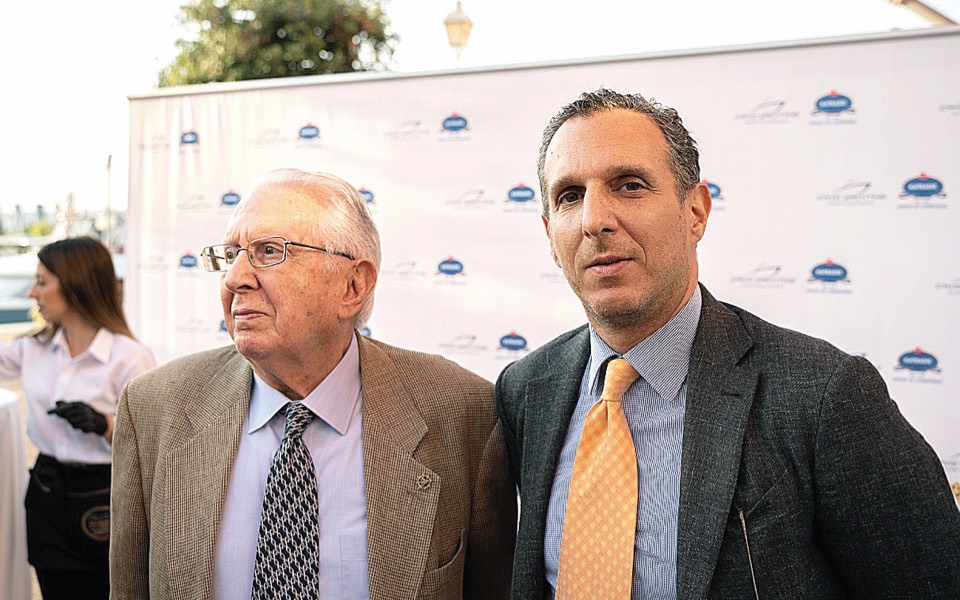
From satellites to renewable energy, new ropes with amazing properties can deliver more with less effort and less weight. And what is the environmental footprint of the ropes? “We are part of the battle to prevent old ropes from being thrown into the sea, speaking with ports, promoting the idea of creating spaces where they are collected for recycling. However, the chemical industry has not yet developed enough to be able to recycle successfully,” Katradis explains.
Be that as it may, mooring ropes will continue to play their central role at sea and in transport and define both passenger and merchant shipping in their own way. “The safety of a ship relies on having strong ropes,” notes Nikolaos Katradis, repeatedly referring to shipping as “Greece’s oxygen.”
Recalling another story from the past, the senior Katradis stresses an idea that is central to the “Greek maritime miracle.” “In the 1940s, when the Germans came, they took all our ropes. Nevertheless, my father owed 1 million [drachmas] on a loan to a bank and decided to pay it off. Everyone made fun of him. ‘What are you doing?’ they told him. ‘There’s going to be an occupation and you have four children.’ But he said, ‘I will have a good name once the war is over.’ And indeed, after the Germans left, the bank remembered his move and helped him start again. You see, there’s value in a good name. Money can be lost, but a good name stays.”
